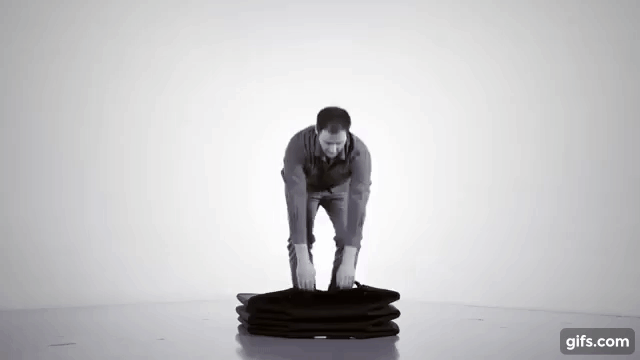The startup sobriety gambit
Welcome to The TechCrunch Exchange, a weekly startups-and-markets newsletter. It’s inspired by the daily TechCrunch+ column where it gets its name. Want it in your inbox every Saturday? Sign up here. Hello and welcome to the weekend, my friends! Today we’re sticking to simple fare. The meat and potatoes — pea protein and gluten-free starches? […]

Welcome to The TechCrunch Exchange, a weekly startups-and-markets newsletter. It’s inspired by the daily TechCrunch+ column where it gets its name. Want it in your inbox every Saturday? Sign up here.
Hello and welcome to the weekend, my friends! Today we’re sticking to simple fare. The meat and potatoes — pea protein and gluten-free starches? — of our beat, namely startup activity. So, read on for some news from startups that we think are pretty neat.
Not to beat the personal drum too hard, but I’ve had my ins and outs with drinking. Ultimately, I gave it up entirely. So when Reframe entered my view the other week, I was curious.
The startup offers an app built to help people reduce their alcohol consumption, focused on individuals who are not physically addicted to the drug but do want to reduce their consumption or quit altogether. The market for help with drinking — really any drug addiction, dependency or issue — is huge. I know this because I have the enormous privilege of talking to lots of folks who are looking to cut back or stop boozing altogether. The situation is getting worse during the pandemic, I’d add.
So I was not surprised to learn that Reframe has been on a rapid trajectory of late, raising $1.4 million from Atlanta Ventures before taking part in Y Combinator (Summer 2021 class, when I cited it as one of my favorites). It raised $3.4 million after the accelerator program and recently closed a $12.5 million round. That final funding event took place just as 2021 closed, and was put together at a $100 million post-money valuation.
The startup is clearly onto something. And, thankfully, it was willing to talk about its results in detail.
I spoke with the company’s CEO, Vedant Pradeep, who told The Exchange that in the last six months, Reframe has scaled its ARR by a compounding rate of around 79%. Pradeep also said that his company has seen 10.3% compounding weekly growth over the last 12 months. All that has added up to $9.5 million worth of ARR by January 28, a figure that Pradeep updated to $10 million earlier this week by text message.
Even better, the company’s mix of tools — CBT, journaling, etc. — is helping people make real changes to their drinking. Per Pradeep, some 88.63% of its users “reported meeting their drinking goals” at the two-month mark. The CEO added that based on his company’s data, the preceding data point “represents a [greater than] 50% reduction in their drinking.”
That’s huge. Like huge.
Now, I do have some squeamishness about for-profit care for drug-related matters. But I talked through the company’s pricing model with Pradeep, as well as his policies regarding those without enough money to pay Reframe. At least by my standards, the company is striking a fair balance.
At a time in which it seems that every tech leader, luminary and knave is piling head-first into the crypto space in hopes of a quick buck, Reframe is a reminder that solving real problems is another way to make money. I just wonder why the company’s most recent valuation didn’t have another zero in it, given recent startup pricing trends.
And speaking of alcohol
Sticking to the boozing theme of today: wine. It’s a whole thing.
I can tell you that time spent learning about wine is not wasted. Provided you aren’t in the Reframe customer demographic, wine snobbery is a fun pastime. Knowing how to enjoy a chablis over a robust California cabernet is table-stakes if you like to plop around chairs with friends and slowly intoxicate your cranium.
But not all wine is strictly for drinking. Some of it is actually investment-grade stuff. Which is why Vinovest is building a platform to let regulars bet on wine price appreciation. It recently released a way for its customers to invest in individual wines. Previously, Vinovest was more focused on its robo-advisor service in the wine investing category. In short, the company is a wager that more folks want access to alternative investing options, fine wine being one that has usually been out of reach.
I bring the Vinovest news up as it appears to be onto something, posting 500% AUM growth in 2021. Per the company and its intrepid spokesperson William Ruben, Vinovest holds more than 250,000 bottles in user portfolios, which are stored in “custom-built warehouses across the world.”
Between the crypto surge, folks buying digital collectibles and more, perhaps wine investing is going to find allocation in more suburban 401(k)s. If that pans out, well, Vinovest’s market bet could bear — fermentable — fruit.
















